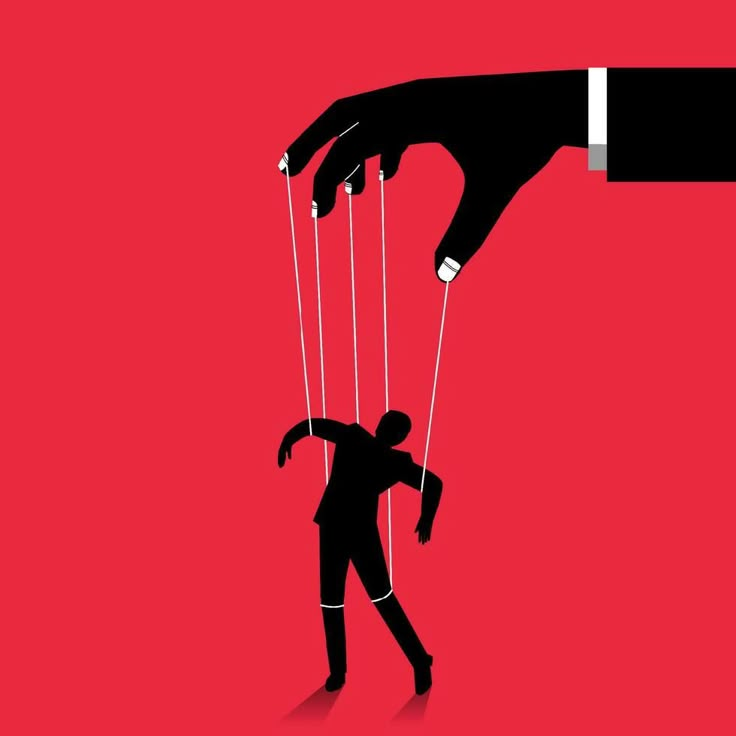The Internship Trap: How Young Africans Are Being Exploited

Internships in Africa Are Modern-Day Exploitation
Let’s be honest: most internships in Africa are not opportunities—they are free labour disguised as “experience.” Across Nigeria, Kenya, Ghana, and South Africa, companies exploit young graduates, using their ambition to cut costs while offering little to no compensation, mentorship, or meaningful skill development. Far from empowering the youth, this system traps them in low-value work, draining finances, energy, and confidence.
While governments and companies celebrate “internship programs” as stepping stones to professional success, the reality is far darker: millions of young Africans are caught in a cycle of overwork and underappreciation, with promises of opportunity serving as little more than a façade.

Photo Credit: Pinterest
The Mechanics of Exploitation
Unpaid Work Disguised as Experience
Interns frequently perform tasks that are identical to paid employees but receive nothing in return. Firms often justify this by claiming that the “experience gained” is reward enough. However, according to a 2023 ILO report, up to 60% of African interns do not receive any financial compensation. From handling client emails to producing reports, interns carry real responsibility while companies enjoy zero labour costs.
Excessive Workloads Without Boundaries
Interns are expected to work full-time hours, often extending into nights and weekends, all while juggling studies, side hustles, or personal obligations. With no contracts, sick leave, or benefits, interns bear the brunt of pressure and responsibility, creating stress and burnout that affect both mental and physical health.
Menial and Irrelevant Tasks
Rather than gaining industry-relevant experience, interns often spend months performing administrative duties—photocopying, filing, or making coffee—tasks that add little to their professional development. While companies tout “robust internship programs” in marketing materials, the reality often amounts to little more than free labor.
Lack of Legal Protection
Unlike regular employees, interns rarely have contracts, clear roles, or grievance mechanisms. This leaves them vulnerable to workplace harassment, arbitrary dismissal, and other forms of exploitation with little recourse.

Why Firms Exploit Interns
Exploitation is systematic and intentional, benefiting companies in multiple ways:
Cost-Cutting Measures
Interns are essentially free labor. Assigning them tasks that would normally require paid employees allows companies to reduce operational costs dramatically.Talent Filtering Without Commitment
Internships act as long probation periods. Companies can evaluate skills without financial or legal responsibility. Many interns are never offered permanent roles, yet they provide months of work at no cost.Boosting Public Image
Offering internships allows firms to project an image of youth empowerment. Social media campaigns, press releases, and glowing LinkedIn posts highlight mentorship, even as interns are overworked and undervalued.Exploiting Ambition and Desperation
High unemployment rates make interns willing to work long hours without pay. Companies capitalize on this desperation, knowing that young Africans are eager to “get a foot in the door.”Minimal Accountability
Most African labour laws do not adequately cover interns. This regulatory gap allows firms to operate with impunity, exploiting talent without fear of legal consequences.Access to Low-Risk Innovation
Some companies leverage interns for research, content creation, or social media management, gaining fresh ideas and labor at zero cost. This creates a cycle where interns contribute to the company’s growth but never reap the rewards themselves.
The Human Cost of Internship Exploitation
The consequences of internship exploitation extend far beyond temporary financial strain. They affect mental health, professional growth, social life, and long-term career trajectories.
Financial Strain
Many interns bear the burden of commuting, meals, and work-related expenses. In cities like Lagos, Nairobi, or Accra, transport alone can consume a significant portion of a graduate’s budget. When combined with unpaid labor, interns often deplete savings or take on additional work just to survive. For students or graduates from low-income backgrounds, this financial pressure can make pursuing a career path feel impossible.
Mental Health Challenges
The stress of long hours, unclear expectations, and low recognition often triggers anxiety, depression, and burnout. Interns juggle multiple responsibilities while meeting demanding employer expectations, creating constant pressure and fear of failure. The psychological toll of feeling undervalued can be long-lasting, affecting motivation and overall mental well-being.
Stunted Professional Growth
Internships are supposed to build skills, but exploitation often stifles career development. Menial or repetitive work leaves interns without meaningful experience in their fields, resulting in underdeveloped portfolios, fewer job opportunities, and delayed entry into stable employment. Many leave with “experience” that doesn’t translate into real-world advantage.
Erosion of Confidence and Motivation
Months of effort without recognition or compensation can erode self-worth. Interns may begin doubting their abilities, leading to decreased ambition and reluctance to take on new challenges. Over time, this can have a profound impact on career trajectory and life decisions.
Social and Opportunity Costs
Interns often sacrifice personal time, social connections, and educational opportunities. Months spent in low-value work could have been invested in skill-building courses, paid projects, or networking in environments where they are genuinely valued. The cumulative effect is a generation overworked, underpaid, and behind global peers in terms of skills, exposure, and career advancement.
In essence, the system of unpaid or underpaid internships is not just a minor inconvenience—it is a barrier that perpetuates inequality, limits upward mobility, and undermines the mental and emotional well-being of Africa’s future workforce.

Photo Credit: Pinterest
Breaking the Cycle: Solutions for Change
Policy and Regulation
Governments need to expand labour laws to cover interns, enforcing minimum compensation, contracts, and basic workplace protections. Without legal backing, interns remain vulnerable to exploitation.Transparency in Job Description
Companies must clearly define roles, responsibilities, and measurable learning outcomes. Interns should know what they are expected to do, what they will learn, and how it contributes to their career growth.Intern Networks and Advocacy
Youth associations, online forums, and peer networks can empower interns. Sharing experiences, reporting abuse, and collectively demanding fair treatment can challenge exploitative practices.Informed Decision-Making by Interns
Young Africans should research companies before accepting positions. Platforms like LinkedIn, Glassdoor, and local internship forums provide reviews and warnings about exploitative employers.Corporate Accountability
Businesses must move beyond PR campaigns. True mentorship, fair compensation, and real skill development should replace unpaid labour disguised as “experience.”Encouraging Paid Micro-Internships
Short-term, paid internships or project-based experiences can allow students to gain skills while receiving compensation, reducing financial strain and preventing exploitation.
Conclusion
Internships in Africa should be stepping stones to opportunity, yet too often they are traps. Ambitious young Africans enter hopeful, only to leave overworked, underpaid, and disillusioned. Companies benefit from free labour while governments and society remain largely silent. True empowerment requires fair pay, legal protection, transparency, and meaningful mentorship. Until systemic reform occurs, internships will remain a modern form of exploitation rather than the career-launching platforms they are advertised to be.
More Articles from this Publisher
What’s Really in Your Pepper? FIIRO Warns of Toxic Grinding Machines

Heavy metals from common market grinding machines may be entering everyday meals, with FIIRO linking the exposure to ris...
High-Income Careers That Don’t Require Traditional University Paths

Some of the highest-paying careers don’t care where you studied. Skills, results, and execution now open doors that dipl...
Was Santa Claus Really Copied from African Masquerades?

Was Santa Claus copied from African masquerade traditions? The claim sounds bold, but the historical record tells a diff...
How Many Mudashiru Ayenis Have We Buried, Or Tagged As "Mad"?

He built a robot at 20. Instead of applause, Nigeria sent him to psychiatrists. This is the story of Mudashiru Ayeni, th...
7 Countries Where Valentine’s Day Isn’t February 14

Valentine’s Day isn’t always February 14. Some countries mark love on entirely different dates, and the traditions behin...
Countries That Have Restricted Valentine’s Day Celebration

Valentine’s Day is global but not universally accepted. In some countries, February 14 has been restricted, discouraged,...
You may also like...
Bundesliga's New Nigerian Star Shines: Ogundu's Explosive Augsburg Debut!

Nigerian players experienced a weekend of mixed results in the German Bundesliga's 23rd match day. Uchenna Ogundu enjoye...
Capello Unleashes Juventus' Secret Weapon Against Osimhen in UCL Showdown!

Juventus faces an uphill battle against Galatasaray in the UEFA Champions League Round of 16 second leg, needing to over...
Berlinale Shocker: 'Yellow Letters' Takes Golden Bear, 'AnyMart' Director Debuts!

The Berlin Film Festival honored
Shocking Trend: Sudan's 'Lion Cubs' – Child Soldiers Going Viral on TikTok

A joint investigation reveals that child soldiers, dubbed 'lion cubs,' have become viral sensations on TikTok and other ...
Gregory Maqoma's 'Genesis': A Powerful Artistic Call for Healing in South Africa

Gregory Maqoma's new dance-opera, "Genesis: The Beginning and End of Time," has premiered in Cape Town, offering a capti...
Massive Rivian 2026.03 Update Boosts R1 Performance and Utility!

Rivian's latest software update, 2026.03, brings substantial enhancements to its R1S SUV and R1T pickup, broadening perf...
Bitcoin's Dire 29% Drop: VanEck Signals Seller Exhaustion Amid Market Carnage!

Bitcoin has suffered a sharp 29% price drop, but a VanEck report suggests seller exhaustion and a potential market botto...
Crypto Titans Shake-Up: Ripple & Deutsche Bank Partner, XRP Dips, CZ's UAE Bitcoin Mining Role Revealed!

Deutsche Bank is set to adopt Ripple's technology for faster, cheaper cross-border payments, marking a significant insti...